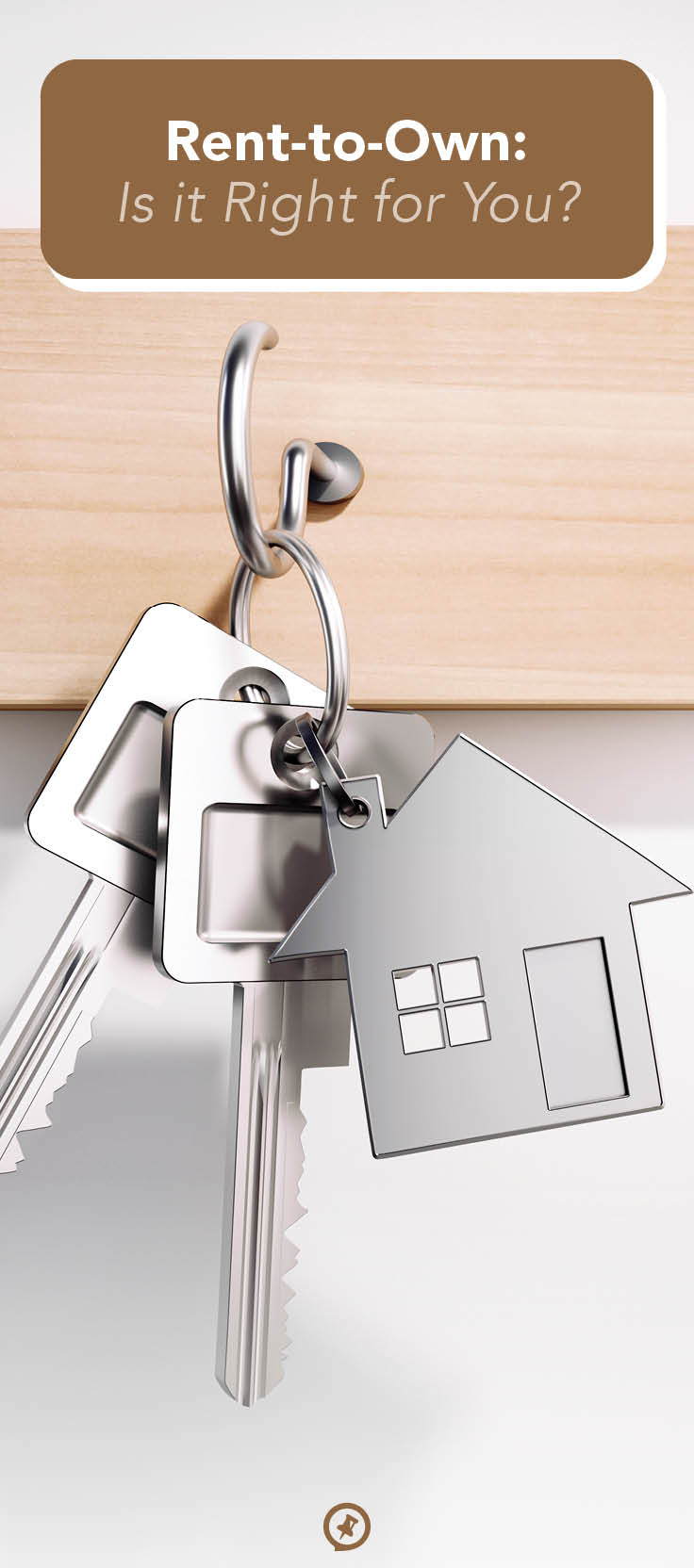Is Rent-to-Own Right for You?
The concept of rent-to-own is familiar to many people, as this financial arrangement became quite popular after the 2008 market crash.
If you’re interested in becoming a homeowner but you lack the down payment funds, your debt-to-income ratio is too high, or your credit score isn’t high enough to get a loan, this option may be the perfect solution for you.

What is rent-to-own?
The rent-to-own model is an excellent way to purchase a home if you’ve been excluded from traditional homebuying because it gives you the exclusive right to buy the house when your lease expires. The process involves renting a property for one to three years, during which a portion of each month’s rent goes toward the down payment on the house. In addition, there is a required option fee, typically between 2 percent and 7 percent of the purchase price, that must be paid at the start of the lease but is later credited toward the home’s purchase.
How does it work?
There are two different kinds of rent-to-own agreements: a lease option and a lease purchase. Each has its upsides and downsides, though ultimately the real estate market conditions at the time of signing will likely dictate which agreement you choose to enter.
Lease option
This arrangement gives you the right—but not the obligation—to purchase the home at the end of the lease. If you decide to follow through with the purchase, a portion of the rent you paid, along with the option fee, will be credited toward your down payment. However, if you no longer want to buy the home at the end of the lease, you can move on with no further ties or repercussions. This arrangement also allows you to negotiate the purchase price with the seller before or at the end of your lease, which is usually based on an appraisal of the home’s fair market value.
Lease purchase
Like the lease-option arrangement, a lease-purchase agreement also applies a portion of your rent toward your down payment. With this contract, though, you are obligated to purchase the home when the lease expires. Also, the price of the house is determined up front and written into the contract; therefore, if market conditions worsen and prices fall, you’ll still be required to follow through with the purchase at the signed price.

What are the advantages?
The rent-to-own arrangement ultimately enables you to become a homeowner, which may have otherwise been very difficult, if not impossible. It also allows you to start building equity, secure a purchase price based on a fair market value, stop being subject to rising rental costs, and feel a sense of permanence.
What are the disadvantages?
The biggest drawback of a rent-to-own is that if you decide not to purchase the home or can’t secure funding when the lease expires, you will forfeit the additional rent you paid for the down payment, regardless of which agreement you have. Even worse, if you renege on a lease-purchase agreement, you will lose any claim to the house, and you’re at risk of being sued for breach of contract.
If you are considering a rent-to-own, consult with your agent to help you decide if it’s right for you. And, as with any home-related contract, always have a real estate attorney review it before you sign on the dotted line.

















